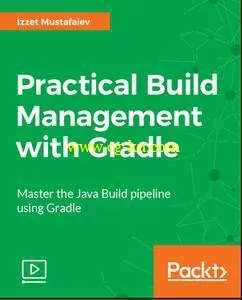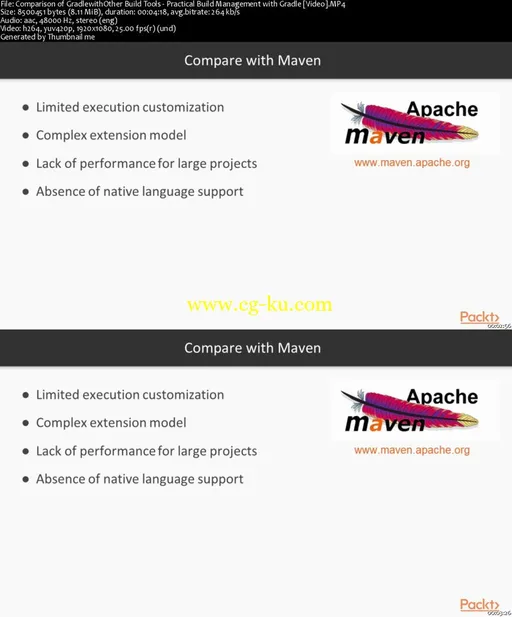
Practical Build Management with Gradle
MP4 | Video: AVC 1280x720 | Audio: AAC 44KHz 2ch | Duration: 4 Hours 45M | 1.16 GB
Genre: eLearning | Language: English
The aim of this course is to walk you through implementing comprehensive build pipelines step-by-step with Gradle for Java projects of any size. You'll set up a build for multi-module Java projects, ensure that business logic is covered by unit and even integration tests, and guarantee your code quality is always at an acceptable level and you’re ready to deliver changes.
In the first of the three course sections, we will start by introducing you to Gradle: Why should you use it? Next, we will look at all the necessary aspects of creating a structure for Java projects, how to execute builds, and how to add and overview dependencies to compile Java source code
Now that you have a good understanding of the key features of Gradle, in the middle core sections we will start to focus on supporting code quality management. With the project structure now built, we will turn our attention to leveraging Gradle's out-of-the-box capabilities to execute unit tests and cover source code with integration tests. We will introduce concepts to help you keep your Java source code aligned with industry best practices by leveraging static source code analysis tools. Finally on each build you can be sure that your code is not only compiles, but also the logic is correct and best practices have been applied.
Towards the end we will focus on applying Gradle to individual use cases. We will delve into creating and organizing Gradle tasks and overview how to incorporate incremental tasks.
Next, we will look at how to parameterize Gradle execution to support different build conditions. The section ends with an overview of the Gradle API and how to fulfill your project's unique needs by leveraging plug-ins and rules. Also, we'll explore the use cases Gradle can be applied to.

发布日期: 2017-05-03